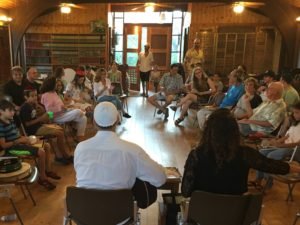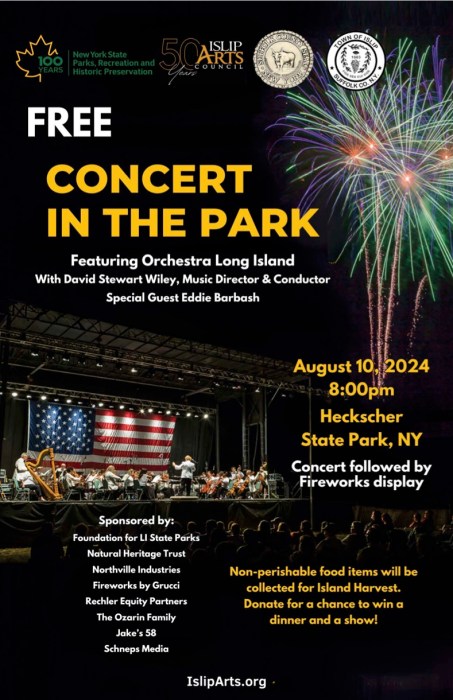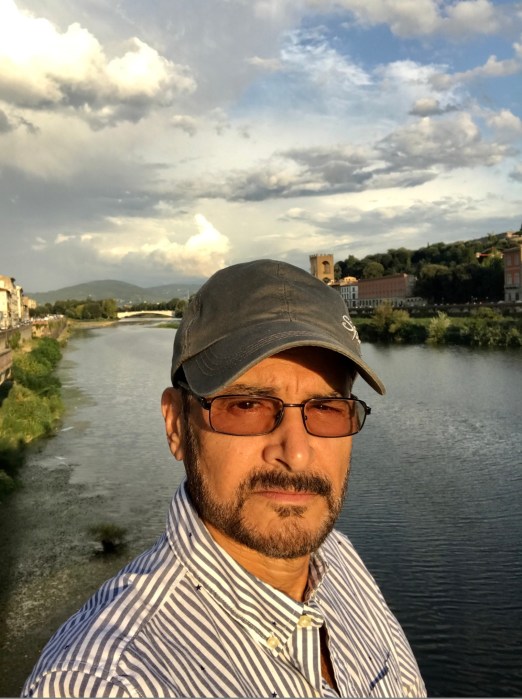Seaview’s beloved Fire Island Synagogue celebrates its 65th anniversary, having held its first organized services in 1952. The community began as a group of families holding orthodox services in private homes – originally in Pulitzer Prize-winning author Herman Wouk’s living room, then later in Jack Miner’s or Rabbi David de Sola Pool’s house in Ocean Beach. During high holidays, services often took place in the Ocean Beach Community House.
The congregation grew gradually, and talk developed of building a permanent home for the Synagogue.
Joe Gershman bought a lot on Beachwold (“B” street) and Central Walk in Seaview after noting its suitability for a shul. Unfortunately, a few months after he bought the lot, he passed away; his widow Josie donated it for the synagogue.
At his home at “B” street and the ocean, Wouk made a convincing appeal for funds to erect a building. Despite his persuasion, which encouraged many people to contribute, he also met substantial opposition with many Seaview residents who argued that, as a residential community, Seaview was no place for a religious center.

In 1972, architect Abe Silverman designed the synagogue and did not charge for his services. The building was opened in 1973, not affiliating with any denomination. The synagogue was open to everyone with no division between men and women. (Although at this point, it wasn’t egalitarian – women could attend but not participate in services.)
The high holidays were always well attended, but by the late 1980s, weekly attendance was dwindling. People had moved away or passed away. After several years of strong lobbying for fully egalitarian services, with women demanding all the opportunities granted to men, the congregation debated the issue. Ultimately a vote prevailed to make the synagogue egalitarian by an overwhelming margin.
Weekly attendance then grew, but gatherings remained small. The synagogue considered ways to get more people involved; eventually, some congregants conceived of a Friday afternoon children’s program. This idea would become hugely successful with Jewish-themed arts and crafts, Jewish stories, and Friday night blessings among its offerings. The program was an integral part of many Fire Island children’s childhoods, and full disclosure, I was one of those children.
These days the children’s program has morphed into the Friday night family service with Rabbi Shaul Magid and Cantor Basya Schechter (following in the footsteps of longstanding cantor Harry Tratner) leading the community in musical prayer.
The synagogue also has fostered cultural outreach and adult education through the Alvin and Mildred Caplow Memorial Scholar fund, inviting distinguished speakers to give an educational talk. Past guests have included scholars; politicians; authors such as Amy Chua, who wrote “Battle Hymn of the Tiger Mother;” Dr. Mehnaz M. Afridi, assistant professor of religious studies and director of Holocaust, Genocide, and Interfaith Education Center at Manhattan College; and Dov Waxman, author of “Trouble In The Tribe: The American Jewish Conflict Over Israel.” Rabbi Magid, a noted academic, also leads lectures on such areas as Kabbala, Hasidism, and medieval and modern Jewish philosophy, as well as gender and religion, and Jewish ethics.
Today, Fire Island Synagogue offers “egalitarian services that blend tradition and innovation with prayer, learning, and joyful music that is open and accessible across denominations,” according to its website, with an “informal island atmosphere, where kippah and tallit often accompany shorts and sandals, is welcoming.”
But it is more than a synagogue; it’s a community center holding religious and non-religious events alike such as classes, discussions, concerts, book openings, performances and Seaview Association meetings.
The synagogue has come a long way in its 65 years, evolving to become the lively, welcoming community that it is today, and not every synagogue can claim Herman Wouk gave a speech in its defense.































